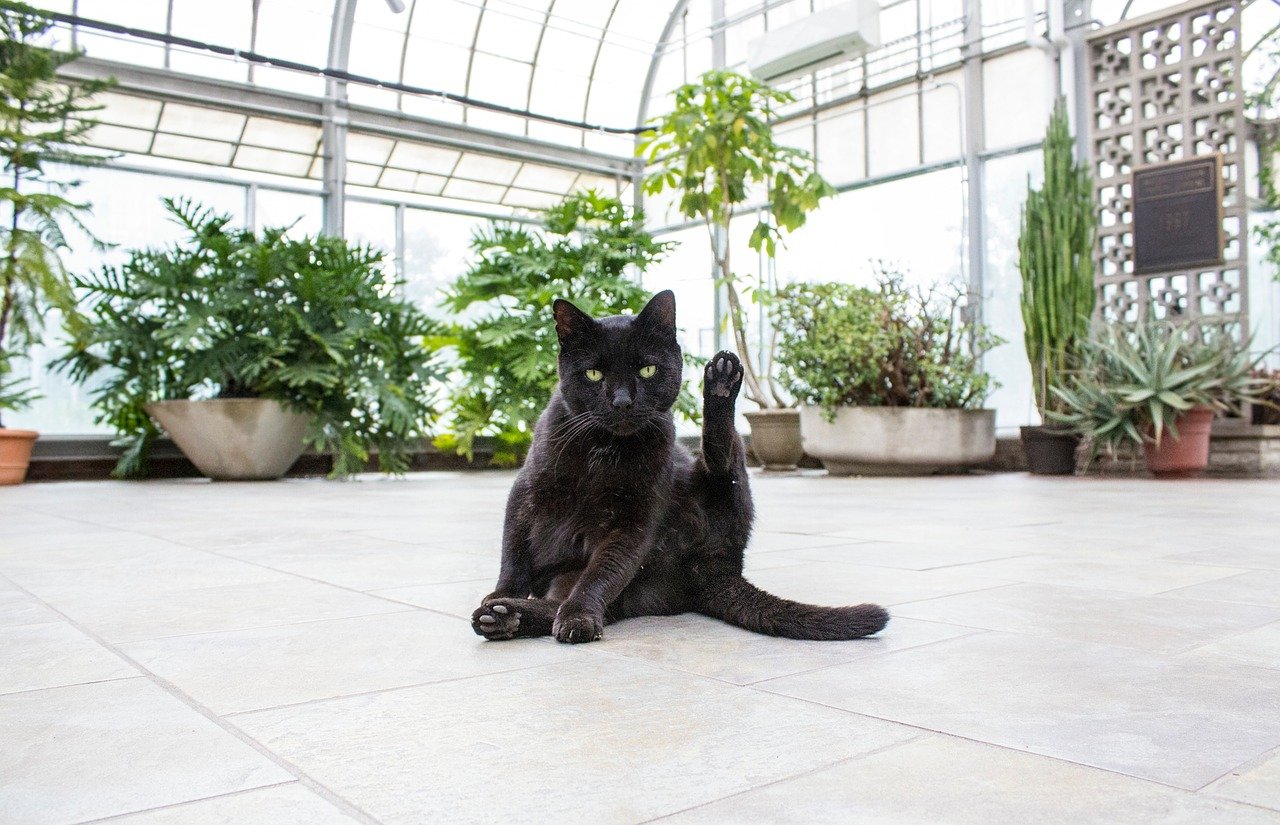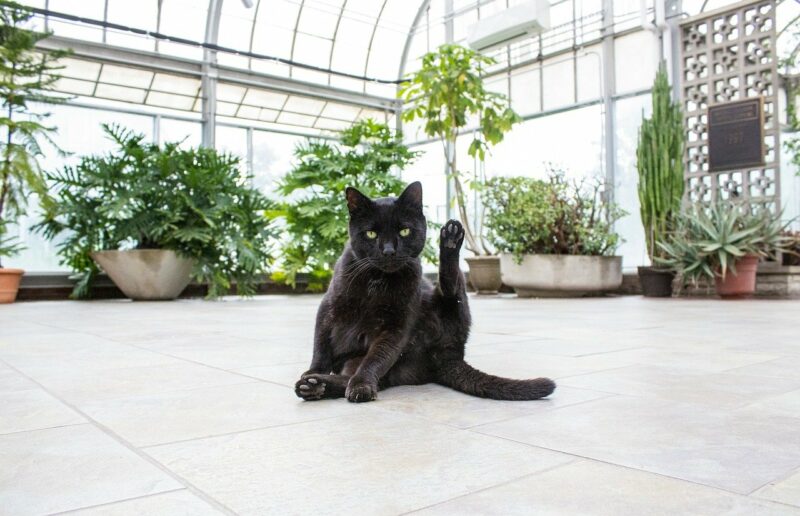Wondering what plant to get that won’t upset your cat? We’ve got you covered. This post lists 15 common houseplants that should be avoided by cat owners—usually. In some cases, cat owners can have a plant that is not necessarily cat-friendly as long as they are kept away from their kitties. In other cases, the plant should not even be near the house.
Let’s take a look and find out which plants are which, shall we?
The 15 Types of Houseplants That Are Poisonous to Cats
1. Spring Bulbs

| Signs: |
Vomiting, diarrhea, drooling, dehydration, lethargy, abdominal pain, organ damage, bone marrow damage, depression, seizures
|
| Toxic Principles: | Varies |
Spring bulbs involve lilies, tulips, irises, daffodils, hyacinths, and more. These flowers often have trumpet-shaped heads and towering stems with stunning colors and stamens. Unfortunately, several of them are lethal to cats. Generally, the most toxic part of the plant to your cat is the bulb, but be aware for some, like daffodils, the flowers can also cause issues like vomiting.
The toxic principles vary from plant to plant, but alkaloids are usually blamed. Indoor cats don’t come across these plants as often as outdoor cats. Still, sometimes you’ll find spring bulbs indoors during special holidays, like Easter.
2. Tradescantia zebrina
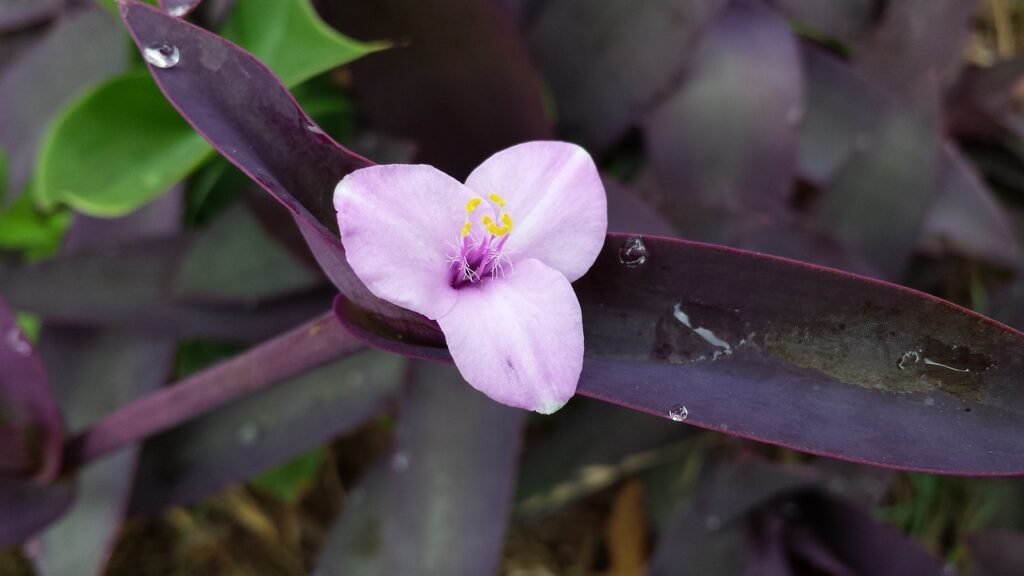
| Signs: | Dermatitis |
| Toxic Principles: | Calcium oxalate crystals |
A beloved plant amongst plant lovers, the Tradescantia zebrina isn’t as friendly toward cats as we had hoped. The sweeping leaves and stems contain calcium oxalate crystals that cause discomfort for your cat.
Thankfully, slight dermatitis (skin irritation) is usually the worst that will happen, but gastrointestinal irritation like vomiting and diarrhea can also occur. If you decide to keep this plant in your home then keep it high up or in a room away from where your cat can’t reach it.
3. Larkspur
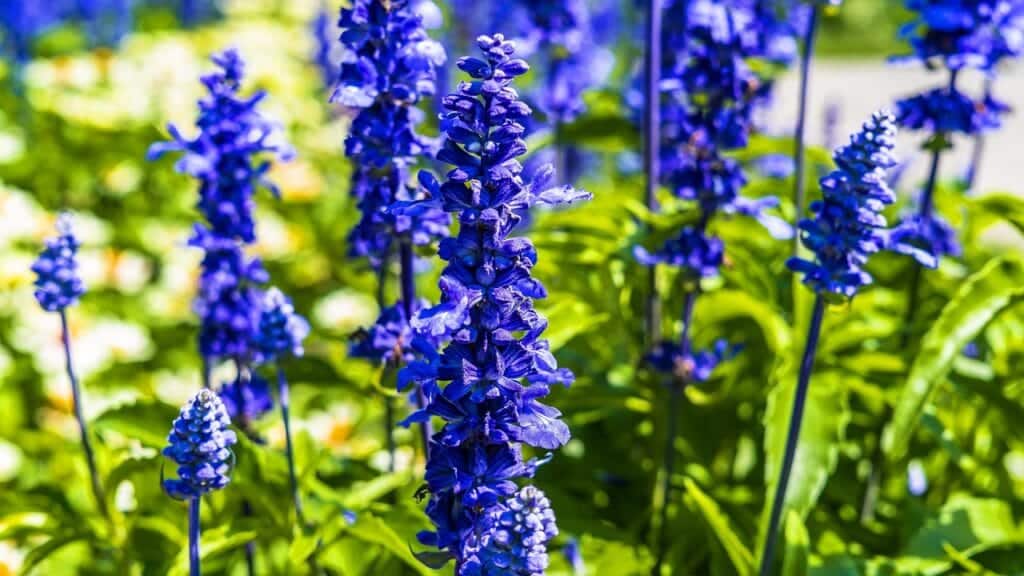
| Signs: |
Constipation, salivation, muscle tremors, weakness, stiffness, recumbency, convulsions, cardiac failure, respiratory paralysis
|
| Toxic Principles: | Diterpene alkaloids |
Larkspur, also known as Delphinium, is highly toxic to cats and is best to keep out of the home and garden. Salvia and coneflowers are great alternatives to grow instead and are equally welcoming of birds and bees outside.
Interestingly, Larkspur’s toxicity levels lessen as the plant matures. Even the field conditions can cause the plant’s toxicity to change.
4. Aloe
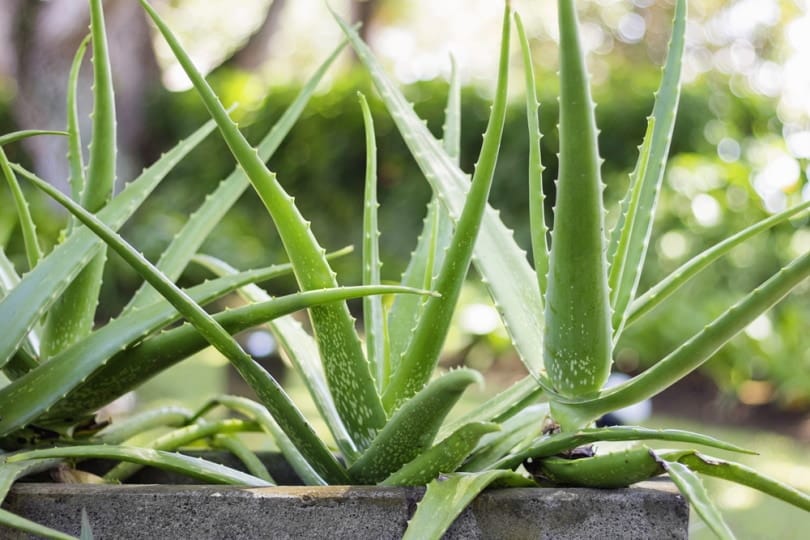
| Signs: | Vomiting, lethargy, diarrhea |
| Toxic Principles: | Saponins, anthraquinones |
The beloved aloe rests on the shelves of almost every home gardener. Shockingly, parts of this plant can be toxic to cats. The leaves contain saponins and anthraquinones that cause vomiting, lethargy, and diarrhea.
Here’s the good news: only the leaves are considered toxic. So don’t worry, you can keep aloe vera on your shelves. The gel is perfectly safe—a big reason why you see it in several pet shampoo products.
5. Sago Palm
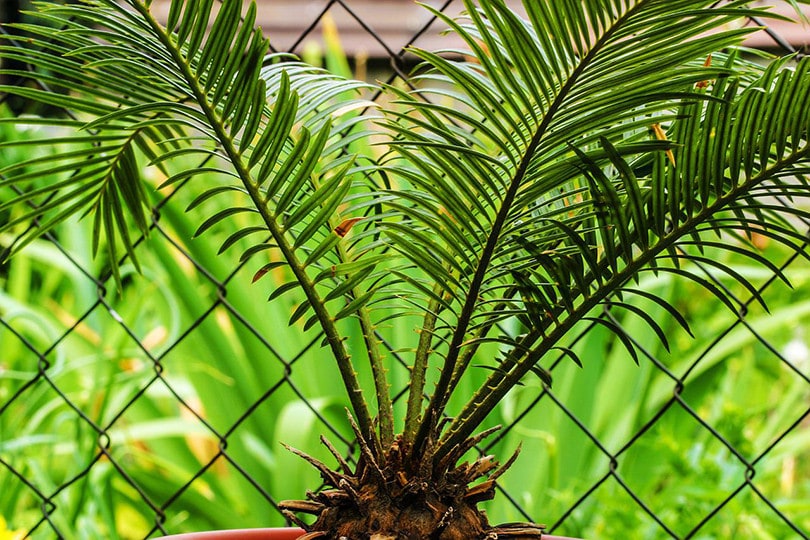
| Signs: |
Vomiting, melena, icterus, thirst, hemorrhagic gastroenteritis, bruising, coagulopathy, liver damage and failure, death
|
| Toxic Principles: | Cycasin |
Sago palm is another highly toxic plant where all parts of the plant are deadly to cats. Unfortunately, the seeds are the most poisonous and most accessible part of the plant to eat compared to the prickly parts. In some cases, pets will show clinical signs as soon as 15 minutes after ingestion.
The best way to prevent poisoning is to keep the plant out of your house.
6. English Ivy
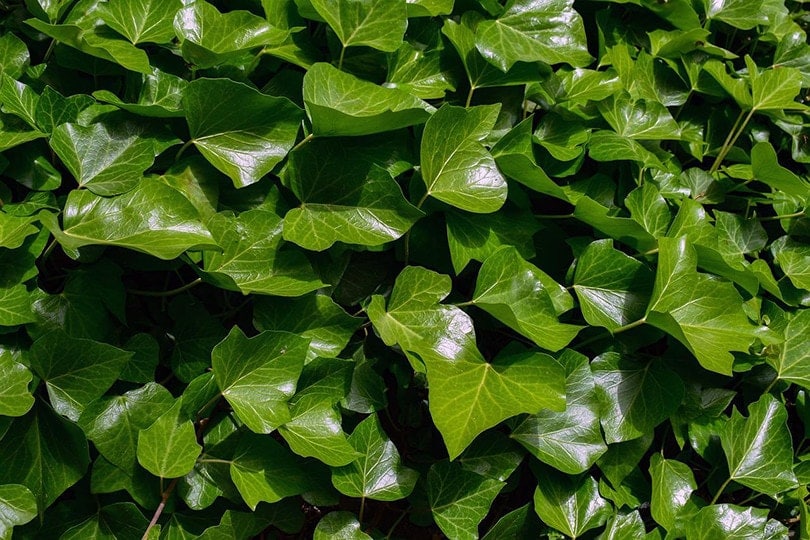
| Signs: | Vomiting, abdominal pain, hypersalivation, diarrhea |
| Toxic Principles: | Triterpenoid saponins |
English ivy is a gorgeous sweeping ivy, adding a nice cottage look to any area, but the foliage is more poisonous than the berries. Cats that eat the leaves could experience vomiting, abdominal pain, hypersalivation, and diarrhea.
You can have the best of both worlds if you suspend English ivy on a shelf where your cat can’t reach the leaves.
7. Oleander
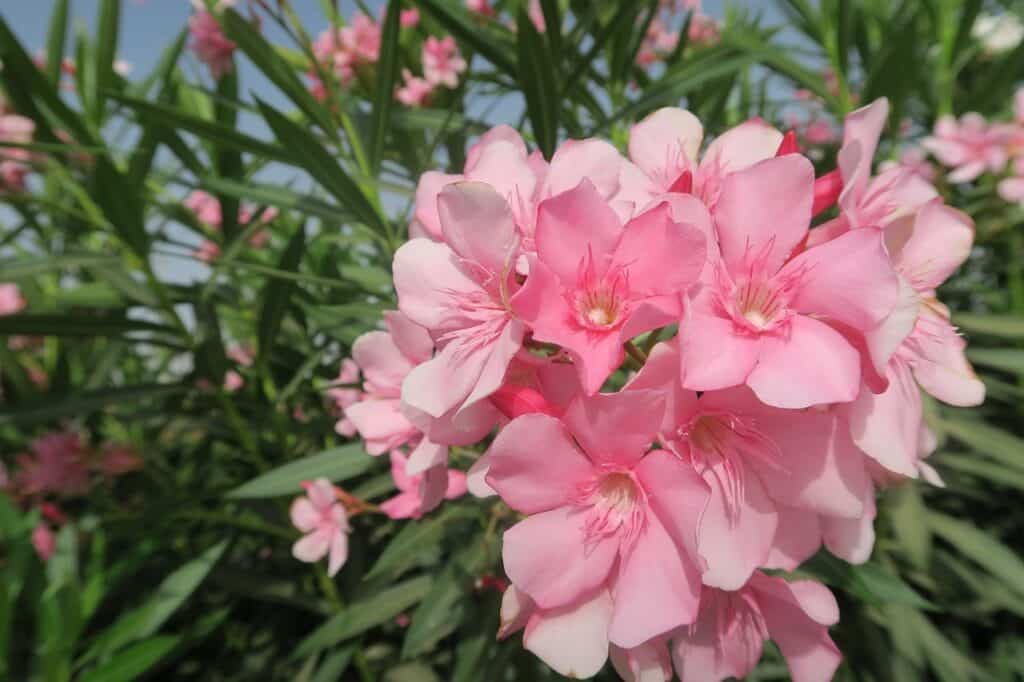
| Signs: |
Drooling, abdominal pain, diarrhea, vomiting, cardiac arrhythmias, depression, death
|
| Toxic Principles: | Cardiac glycosides |
All parts of oleander contain cardiac glycosides that affect the heart and nervous system. Even the water in the vase can cause serious problems if your cat slurps the liquid.
The plant is typically found in warmer climates outside, but many people cut the stems or overwinter the plant indoors.
8. Philodendron
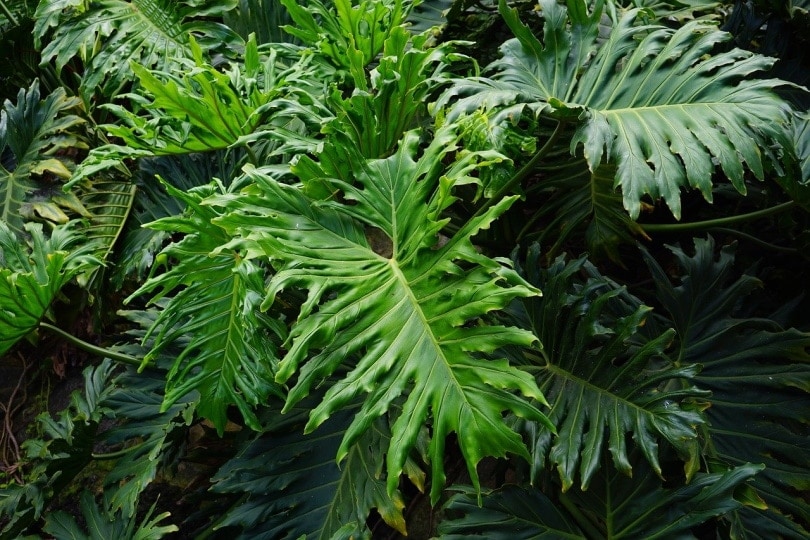
| Signs: |
Oral irritation and swelling, excessive drooling, vomiting, difficulty swallowing
|
| Toxic Principles: | Insoluble calcium oxalates |
Philodendron has beautiful long stems that unravel toward the ground. If a cat nibbles on the leaves, insoluble calcium oxalates will cause oral irritation, swelling, and difficulty swallowing.
You can keep a Philodendron in the house as long as your cat can’t reach the leaves.
9. Fiddle-leaf Fig
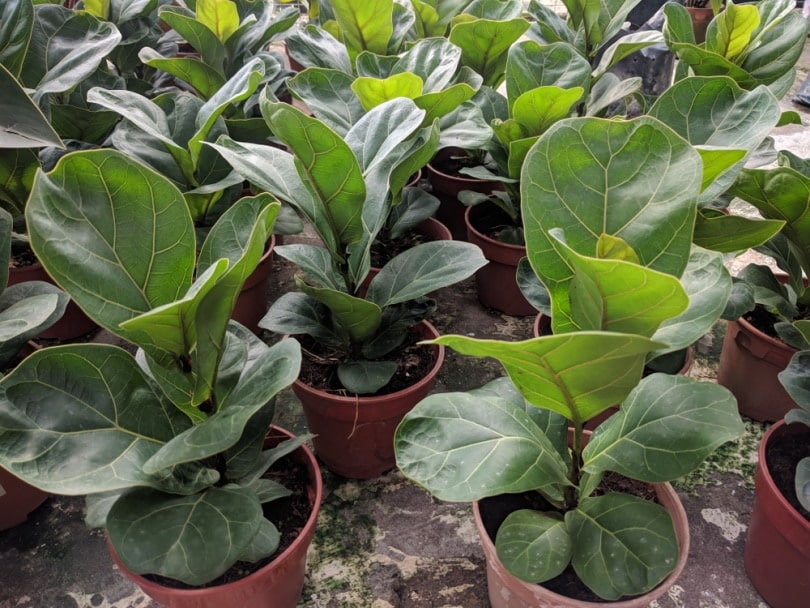
| Signs: |
Oral irritation, severe burning of mouth, excessive drooling, vomiting, difficulty swallowing
|
| Toxic Principles: | Insoluble calcium oxalates |
Fiddle-leaf fig is in the same family as the philodendron, so it makes sense why a cat wouldn’t want to nibble on the woody leaves. The insoluble calcium oxalates within the leaves do the same damage as in a philodendron, with the added defense of burning your cat’s mouth, tongue, and lips.
Fiddle-leaf Figs are more challenging to find a space off the floor since they grow upright instead of descending.
10. Pothos
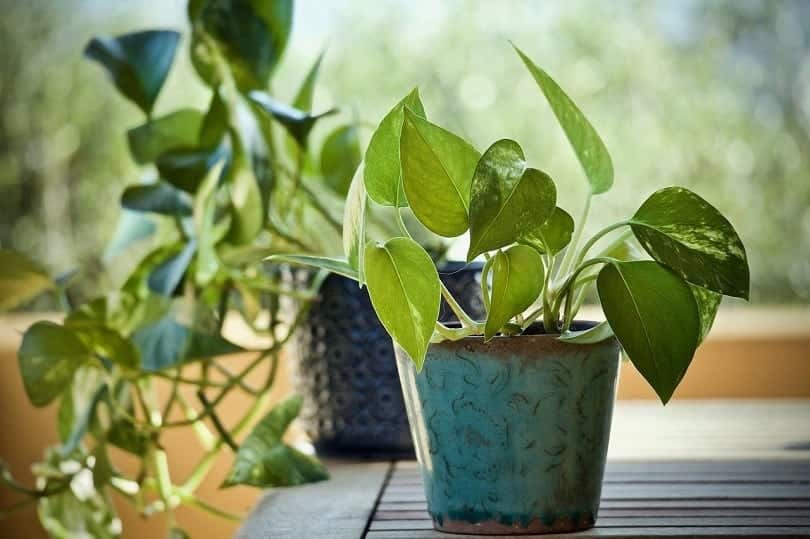
| Signs: |
Oral irritation, intense burning of mouth, excessive drooling, vomiting, difficulty swallowing
|
| Toxic Principles: | Insoluble calcium oxalates |
Like the fiddle-leaf fig and philodendron, the pothos is in the Araceae family and will irritate your cat’s mouth to the point of burning it. Thankfully, it is easy to find a place to grow vertically. They hang nicely near windows and only require minimal sunshine to be happy.
11. Autumn Crocus
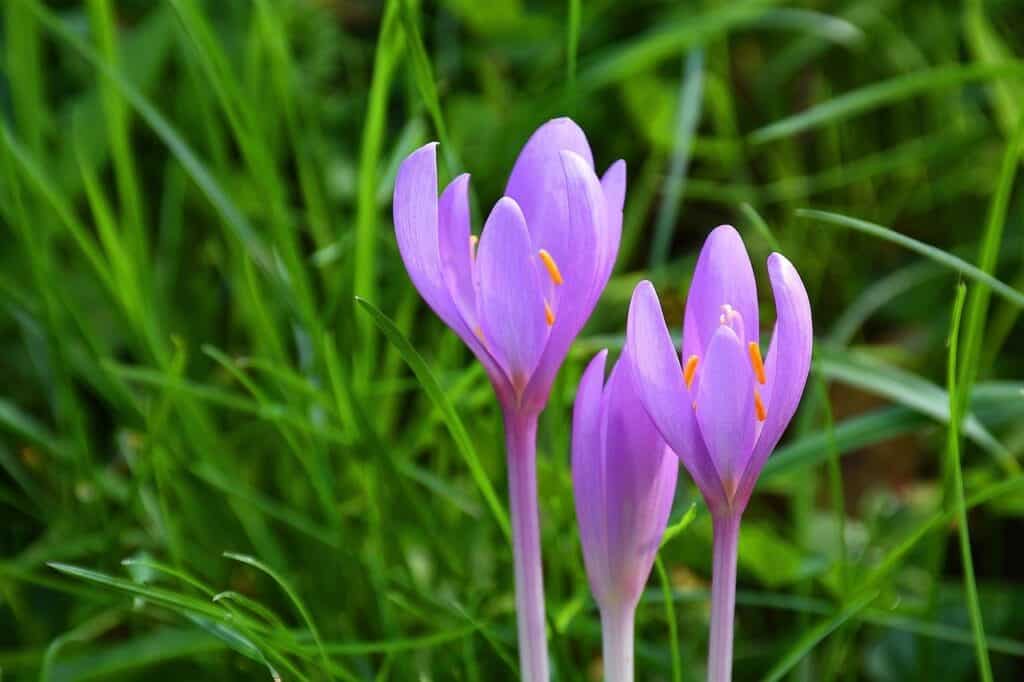
| Signs: |
Bloody vomiting, diarrhea, shock, multi-organ damage, bone marrow suppression
|
| Toxic Principles: | Colchicine and other alkaloids |
Two types of crocus plants exist: the spring-blooming species and the autumn-blooming species. The spring species belong to the Iridaceae and cause general gastrointestinal upset at worst.
However, the autumn crocus (fall-blooming) belongs to the Liliaceae family, the same family that lilies and tulips belong to. These plants cause severe organ damage and can be lethal, so keep the autumn crocus at the garden store.
12. Rhododendrons and Azaleas
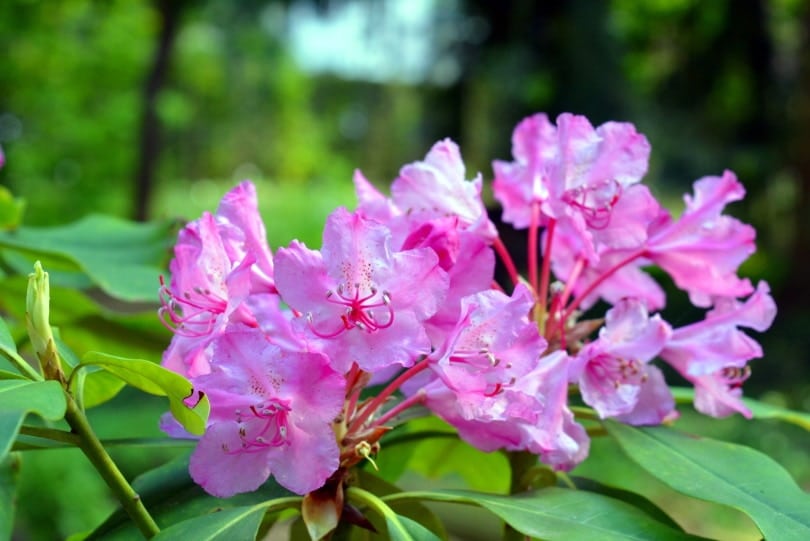
| Signs: | Vomiting, diarrhea, weakness, cardiac failure |
| Toxic Principles: | Grayanotoxin |
Rhododendrons and azaleas have grayanotoxins that affect the bones and cardiac muscle. All parts of the plant are highly toxic. A cat would only need to consume less than 0.2% of its body weight of the plant for the effects to take place.
Unfortunately, without treatment, eating this plant can be lethal. However, with treatment, the outcome is much better.
13. Dracaena
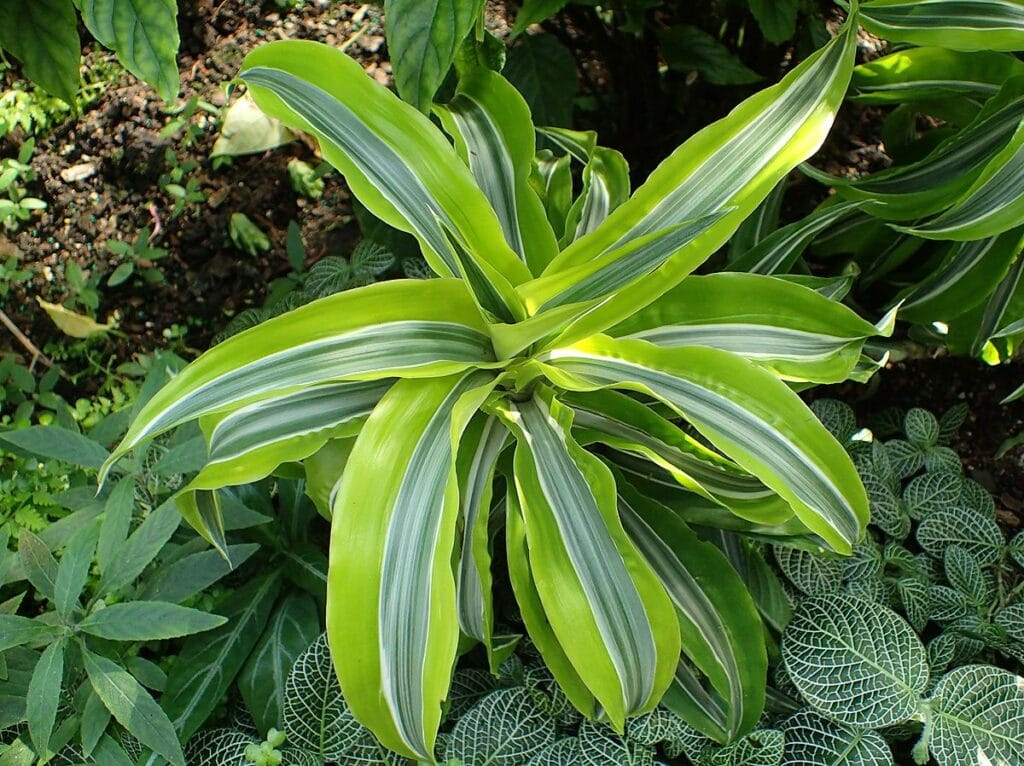
| Signs: | Vomiting, depression, anorexia, hypersalivation, dilated pupils |
| Toxic Principles: | Saponins |
Dracaena is a common palm plant found in many homes and offices. Also known as the West African Soap Tree, the Dracaena’s saponins create foamy soaps that form a natural detergent for clothes and dishes.
However, these saponins are also toxic for cats, causing a wide range of signs like vomiting, depression, anorexia, dilated pupils, hypersalivation, and more. Dracaena isn’t usually lethal but still produces enough damage to warrant an exile.
14. Jade Plant
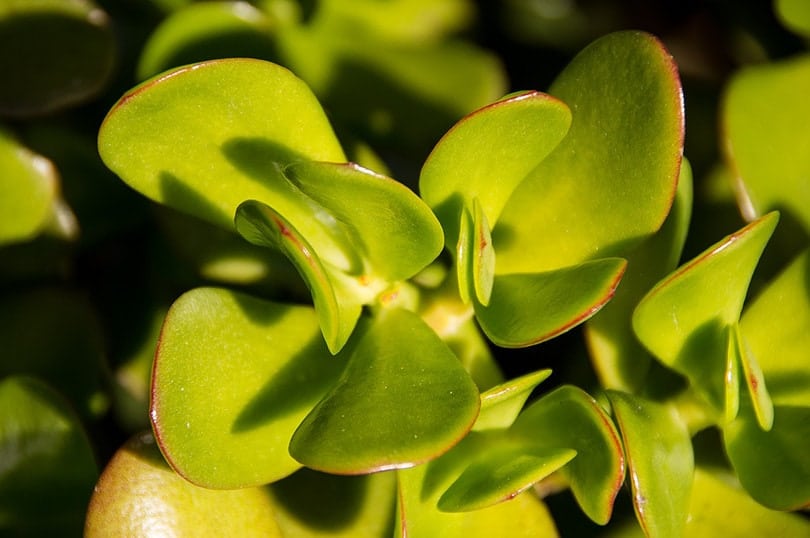
| Signs: | Vomiting, depression, incoordination |
| Toxic Principles: | Unknown |
Jade plant, also known as money plant or money tree, is a succulent with tiny pink and white flowers. When chewed, the jade plant can cause vomiting, depression, and incoordination in your cat. Surprisingly, the reasons are unknown, according to the ASPCA.
15. Kalanchoe
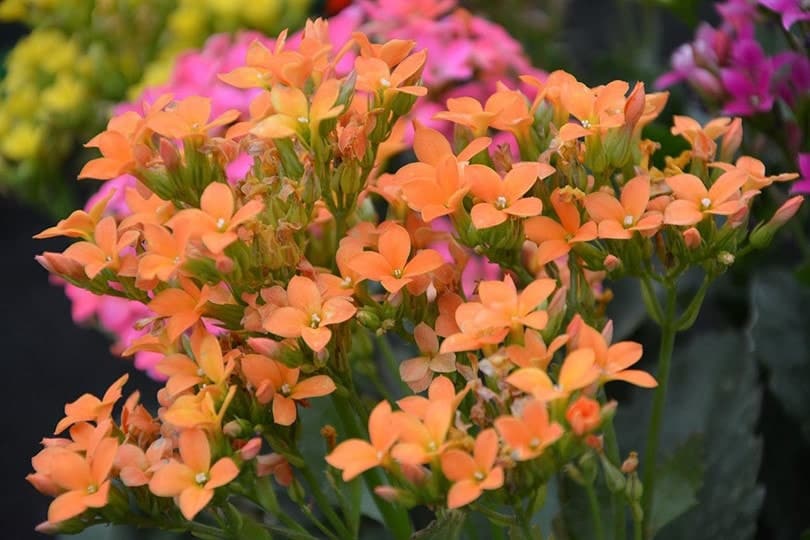
| Signs: |
Abnormal heart rhythm, electrolyte abnormalities, nausea, drooling, vomiting, dilated pupils, tremors, seizures
|
| Toxic Principles: | Bufadienolides |
Kalanchoe is a gorgeous houseplant with hundreds of flowers of various colors. However, all parts of the plant are toxic, causing mild to severe symptoms. Issues like abnormal heart rhythms and life-threatening high potassium levels can occur in extreme cases.
Conclusion
Now you know 15 plants to avoid as you fill your home with gorgeous foliage. The thing about this list is that some plants can still be ok to keep in your home if you can find a location your cat will have difficulty reaching! You have to be strategic about where you place the plant.
Other plants should be avoided entirely, like lilies and sago palms. But don’t let this discourage you. Plenty of cat-friendly plants exist, ready to fit snugly on your bedroom shelf.
You might also like:
- 8 Cleaning Products Toxic to Cats: Vet Approved Facts & Toxicity Explained
- What Flowers Are Dangerous to Cats? 7 Vet-Verified Threatening Plants
Featured Image Credit: StockSnap, Pixabay

